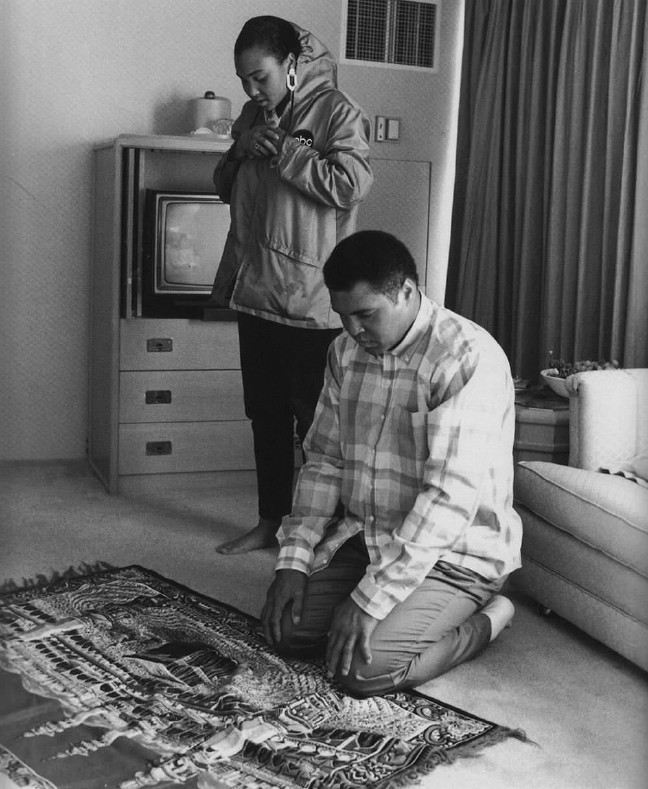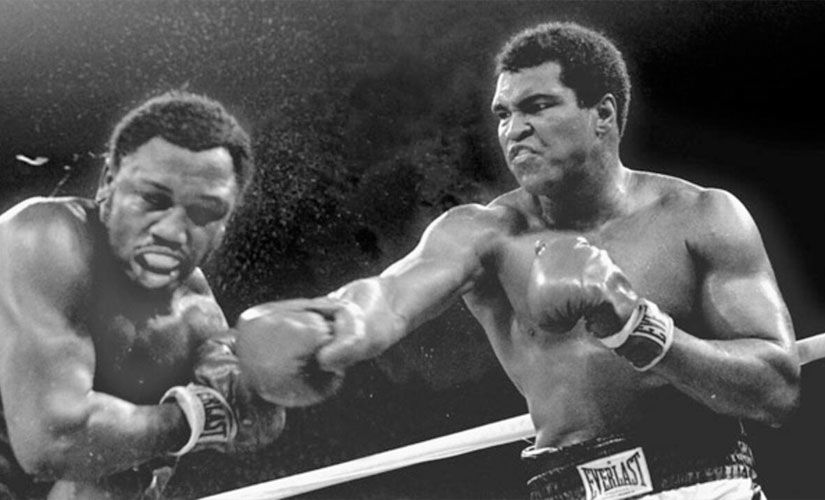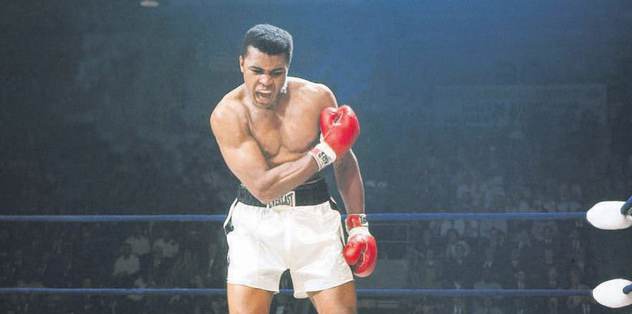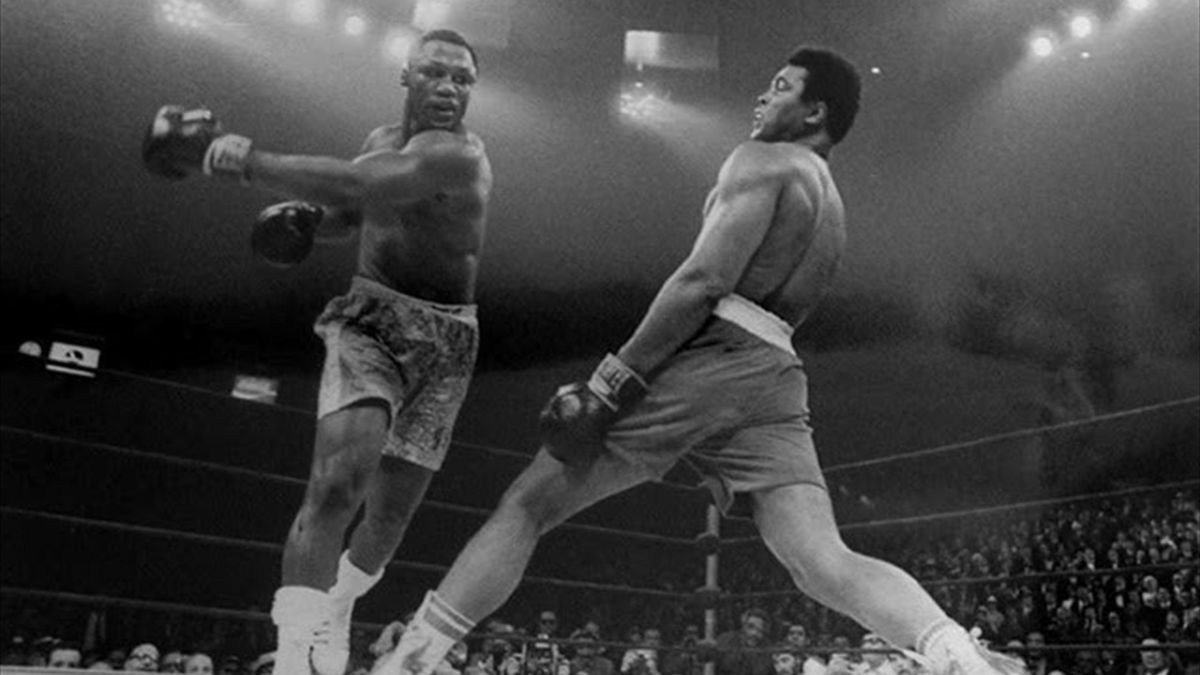Life of Muhammad Ali
The Life and Legacy of Muhammad Ali: A Champion Inside and Outside the Ring
Muhammad Ali, born Cassius Marcellus Clay Jr. on January 17, 1942, in Louisville, Kentucky, was more than just a boxer; he was a cultural icon, a civil rights advocate, and a symbol of resilience. Throughout his remarkable life, Ali left an indelible mark on the world, not only through his prowess in the boxing ring but also through his activism, charisma, and unwavering commitment to his principles.
Early Life and Boxing Career:
Ali's journey began in the modest surroundings of Louisville's segregated West End. Despite facing racial discrimination from an early age, Ali found solace and purpose in the boxing ring. Under the guidance of trainer Joe Martin, he honed his skills and quickly rose through the amateur ranks, winning a gold medal at the 1960 Rome Olympics as a light heavyweight.
Turning professional shortly after the Olympics, Ali embarked on a boxing career that would see him become a three-time heavyweight champion of the world. His lightning-fast footwork, unparalleled agility, and unorthodox fighting style earned him the nickname "The Greatest." Throughout the 1960s and 1970s, Ali's matches against formidable opponents such as Sonny Liston, Joe Frazier, and George Foreman captivated the world and solidified his status as a sporting legend.
Activism and Social Impact:
Beyond his achievements in the ring, Ali used his platform to speak out against racial injustice and advocate for social change. In 1964, he famously announced his conversion to Islam and changed his name to Muhammad Ali, declaring allegiance to the Nation of Islam. His refusal to be drafted into the Vietnam War on religious and moral grounds, stating "I ain't got no quarrel with them Viet Cong," sparked controversy and led to his suspension from boxing and imprisonment.
Ali's steadfast refusal to compromise his principles endeared him to millions around the world, making him a symbol of resistance and defiance against oppression. Following his legal battles, Ali returned to the ring with renewed purpose, reclaiming the heavyweight title and continuing to inspire others with his activism and humanitarian efforts.
Legacy and Influence:
Muhammad Ali's impact transcended the realm of sports, shaping popular culture and inspiring generations of athletes, activists, and ordinary people alike. His fearless pursuit of justice, unshakeable self-belief, and magnetic personality made him a global icon, revered not only for his athletic achievements but also for his contributions to the fight for equality and justice.
Ali's legacy lives on through the countless lives he touched and the causes he championed. His words—"Service to others is the rent you pay for your room here on earth"—continue to resonate, reminding us of the importance of using our talents and privilege to uplift others and create a more just and equitable world.
Conclusion:
In conclusion, Muhammad Ali's life was a testament to the power of perseverance, courage, and conviction. From his humble beginnings in Louisville to his rise as a sporting legend and global icon, Ali's journey exemplifies the transformative impact of one individual's unwavering commitment to their principles. As we celebrate his legacy, let us honor Ali's memory by continuing to strive for equality, justice, and compassion in our own lives and communities.
Muhammad Ali: The Legendary Career of the Greatest Boxer
Muhammad Ali, formerly known as Cassius Marcellus Clay Jr., is widely regarded as one of the greatest athletes of the 20th century. His boxing career, spanning over two decades, was marked by extraordinary talent, charisma, and an unyielding determination to be the best. From his early days as an amateur boxer to his reign as the undisputed heavyweight champion of the world, Ali's journey captivated audiences worldwide and solidified his place in sports history.
Early Years and Amateur Success:
Born on January 17, 1942, in Louisville, Kentucky, Cassius Clay showed an early aptitude for boxing. Under the guidance of trainer Joe Martin, he quickly rose through the ranks of the amateur boxing circuit, showcasing his lightning-fast speed, agility, and powerful punches. In 1960, at the age of 18, Clay won the gold medal in the light heavyweight division at the Rome Olympics, foreshadowing the greatness that was yet to come.
Professional Debut and Rise to Prominence:
Following his Olympic triumph, Clay turned professional and embarked on a meteoric rise through the ranks of the heavyweight division. With his brash personality and dazzling boxing skills, he quickly earned a reputation as a formidable contender. In 1964, Clay shocked the world by defeating reigning champion Sonny Liston to capture the heavyweight title. It was after this victory that he famously declared, "I am the greatest!"
The Reign of Muhammad Ali:
After winning the championship, Clay embraced his newfound identity as Muhammad Ali, following his conversion to Islam. Throughout the 1960s and 1970s, Ali dominated the boxing world with his unparalleled skill, athleticism, and showmanship. His iconic matches against rivals such as Joe Frazier, George Foreman, and Ken Norton captivated audiences and cemented his status as a global superstar.
Notable Fights and Rivalries:
Ali's career was punctuated by several legendary bouts that have become part of boxing folklore. His trilogy with Joe Frazier, including the historic "Fight of the Century" in 1971, showcased his resilience and fighting spirit. The "Rumble in the Jungle" against George Foreman in 1974, where Ali employed his famous "rope-a-dope" strategy to secure victory, remains one of the most memorable moments in sports history.
Outside the Ring: Activism and Controversy:
Beyond his boxing achievements, Ali was known for his outspoken activism and advocacy for social justice. He famously refused to be drafted into the Vietnam War on religious and moral grounds, a decision that led to his suspension from boxing and sparked widespread controversy. Despite facing backlash and legal battles, Ali remained steadfast in his convictions, becoming a symbol of resistance against oppression and injustice.
Legacy and Impact:
Muhammad Ali's influence extends far beyond the world of sports. His courage, charisma, and unwavering commitment to his principles have inspired generations of athletes, activists, and ordinary people around the world. Ali's legacy as a cultural icon and humanitarian continues to resonate, reminding us of the power of sports to transcend boundaries and effect positive change.
Conclusion:
In conclusion, Muhammad Ali's career stands as a testament to the transformative power of perseverance, talent, and conviction. From his humble beginnings in Louisville to his ascent as the greatest boxer of all time, Ali's journey is a source of inspiration for generations to come. As we celebrate his legacy, let us honor Ali's memory by continuing to champion the values of courage, integrity, and social justice in our own lives and communities.
Muhammad Ali's Most Iconic Matches: A Journey Through Boxing History
Muhammad Ali's boxing career was punctuated by a series of iconic matches that showcased his extraordinary skill, resilience, and indomitable spirit. From his early triumphs to his legendary showdowns against formidable opponents, each bout contributed to Ali's legacy as one of the greatest athletes of all time. In this article, we'll explore some of the most significant fights in Ali's illustrious career and the lasting impact they've had on the world of boxing.
- Muhammad Ali vs. Sonny Liston (February 25, 1964):
- Arguably the most significant fight of Ali's career, his bout against Sonny Liston for the heavyweight championship catapulted him to global fame. Despite being a heavy underdog, the brash young challenger famously predicted, "Float like a butterfly, sting like a bee," before stunning the world with a seventh-round TKO victory, becoming the youngest heavyweight champion in history at the age of 22.
- Muhammad Ali vs. Joe Frazier I (March 8, 1971):
- Dubbed the "Fight of the Century," Ali's first encounter with Joe Frazier was a historic showdown between two undefeated heavyweight champions. In a grueling 15-round battle at Madison Square Garden, Ali suffered the first defeat of his professional career in a closely contested decision. The fight became an instant classic and set the stage for one of boxing's greatest rivalries.
- Muhammad Ali vs. George Foreman (October 30, 1974):
- In what would become known as the "Rumble in the Jungle," Ali faced off against the fearsome George Foreman in Kinshasa, Zaire. Despite being considered past his prime, Ali employed his now-famous "rope-a-dope" strategy, absorbing Foreman's powerful punches before launching a dramatic comeback in the eighth round, ultimately scoring a stunning knockout victory to reclaim the heavyweight title.
- Muhammad Ali vs. Joe Frazier III (October 1, 1975):
- The "Thrilla in Manila" marked the culmination of the epic trilogy between Ali and Frazier, with the heavyweight championship on the line once again. The sweltering heat and punishing pace of the fight pushed both men to their physical limits, but it was Ali who emerged victorious after Frazier's trainer stopped the fight before the 15th round. The bout is widely regarded as one of the greatest in boxing history.
- Muhammad Ali vs. Leon Spinks II (September 15, 1978):
- In a rematch against Leon Spinks, who had shocked the world by defeating Ali earlier that year, Ali reclaimed the heavyweight title for the third time in his career. Despite being 36 years old and past his prime, Ali displayed his trademark resilience and ring intelligence to outbox Spinks over 15 rounds, becoming the first fighter to win the heavyweight championship three times.

Conclusion:
Muhammad Ali's career was defined by his ability to rise to the occasion in the face of adversity and his willingness to take on the toughest challenges. From his historic victory over Sonny Liston to his epic battles with Joe Frazier and George Foreman, Ali's matches transcended the sport of boxing, leaving an indelible mark on the world of sports and popular culture. As we reflect on his legacy, we're reminded of Ali's enduring impact as a symbol of courage, resilience, and determination.































